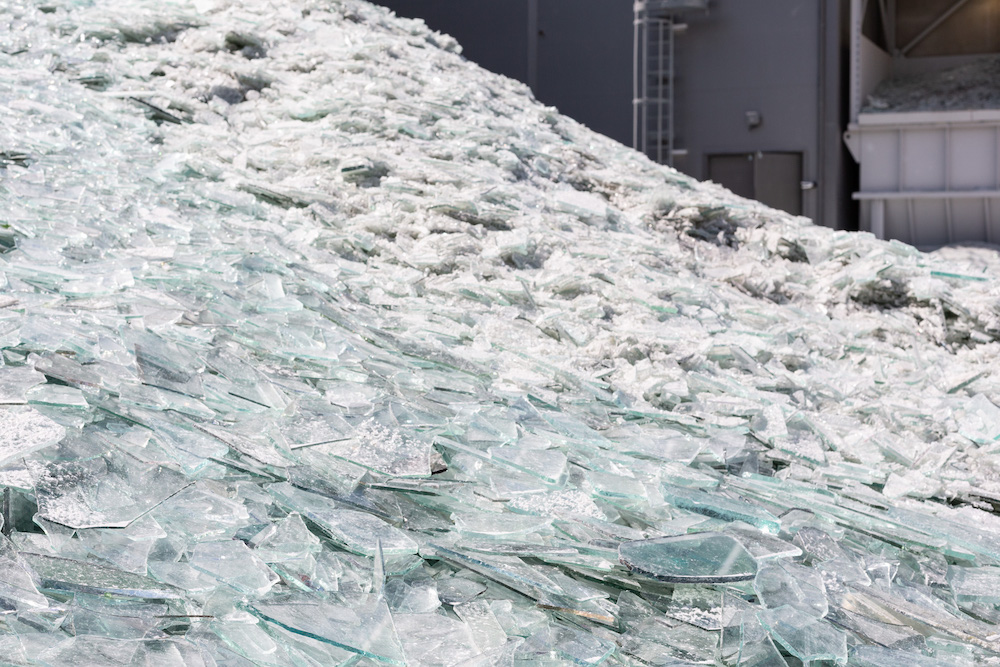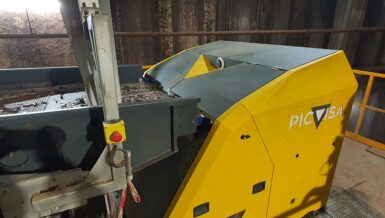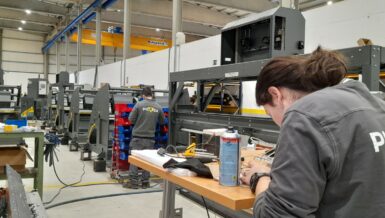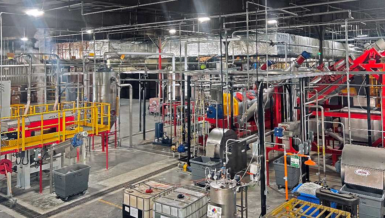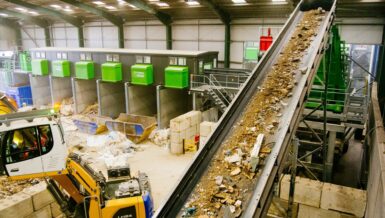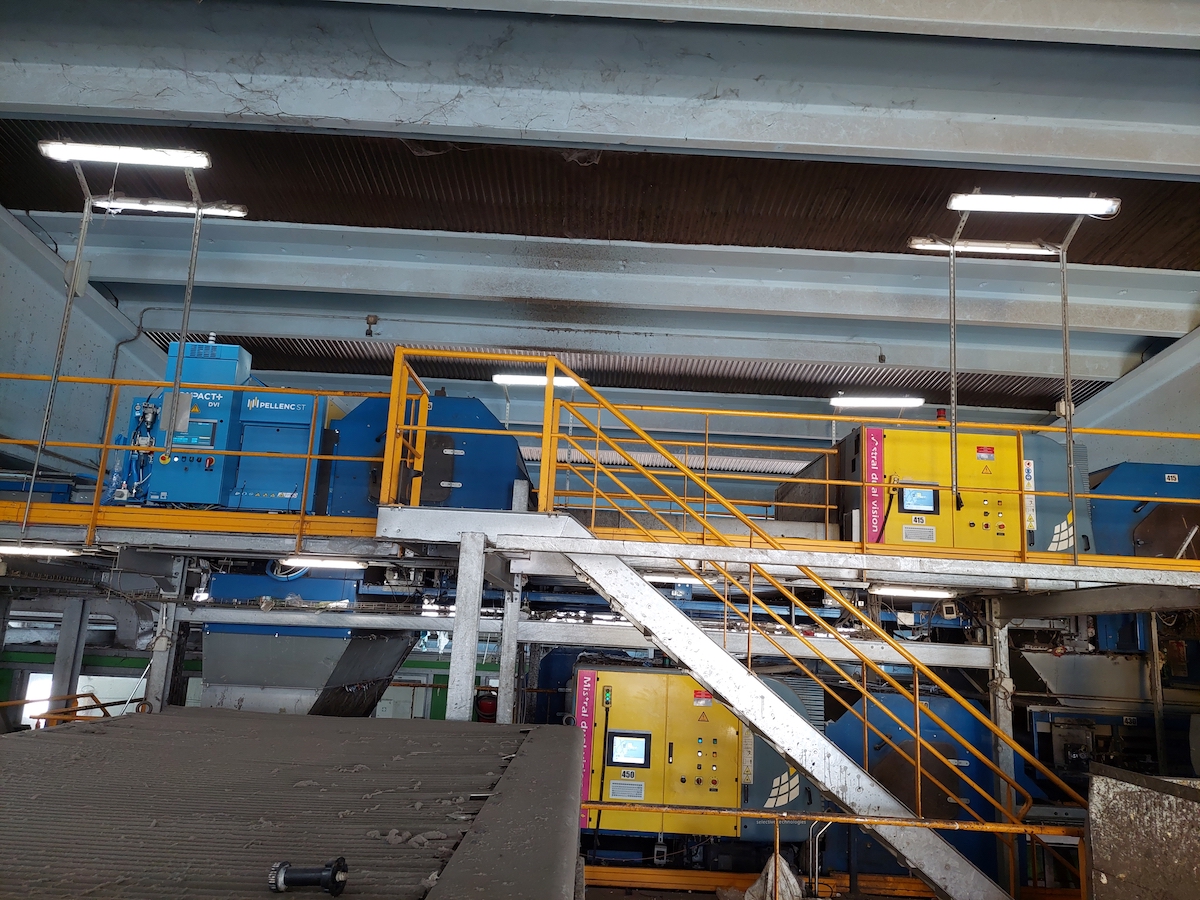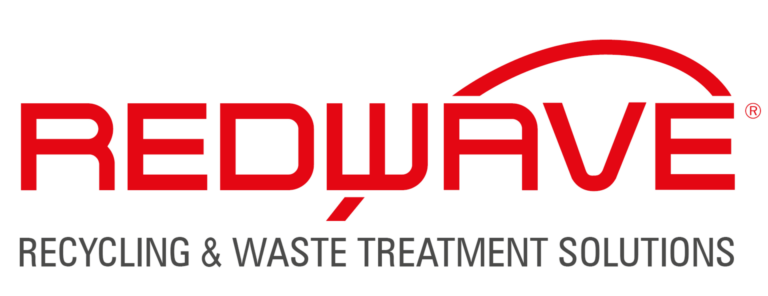After more than 50 successful years at its Amstetten (Austria) site, M. Swarovski GmbH has recently moved to a new home to aid in increasing production capacity – the SWARCO Global Glass Beads Technology Center in Neufurth. At the new site, industrial flat glass waste is processed into high-quality reflective glass beads. The production processes at the new site were designed to be energy self-sustainable. All raw materials are handled as efficiently as possible to fully utilise their potential. The waste heat from the melting tanks flows back into the building’s heat system. Even the dust particles from the filter systems are recycled directly in the factory.
The premium reflective glass beads produced in the plant are subsequently used as high-quality road marking material as well as for special industrial applications.
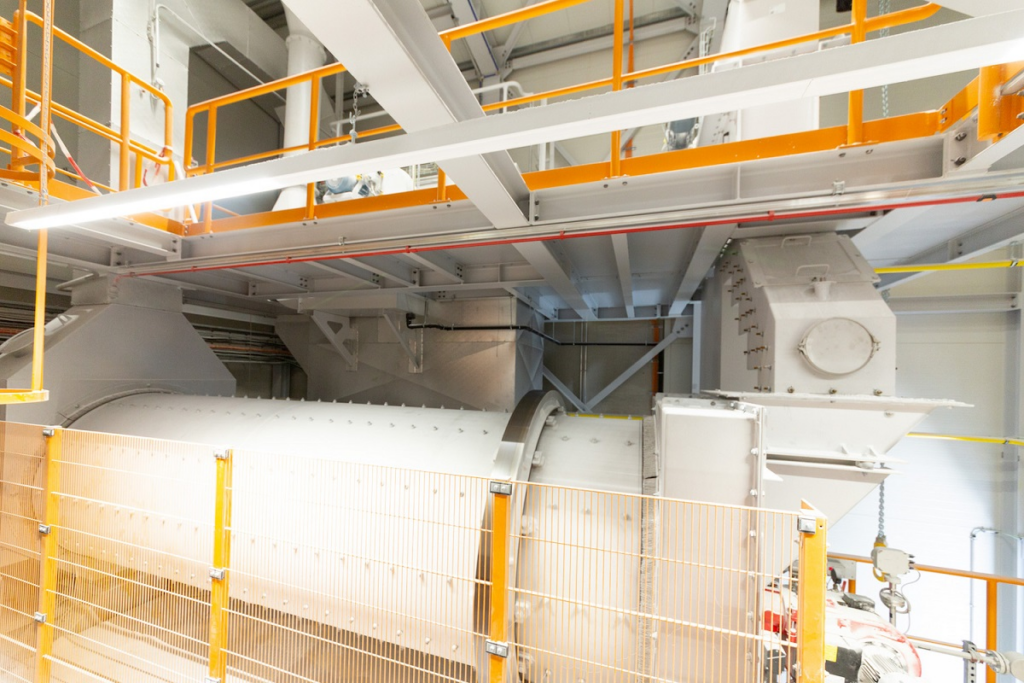

Processing plant: plant process
REDWAVE designed, supplied and installed the plant in which broken glass pieces are processed into mixed grain sized granulate. Overcoming the wear issue created during this process is of utmost importance as extended runtime, with minimal maintenance, effort and efficiently, is the prerequisite. REDWAVE was able to implement this competently due to its many years of experience in the field of glass recycling.
In the first step, flat glass fragments are fed into the bunker. Depending on weather conditions, and the time of year, wet feed material can be dried in a drum dryer and then crushed via a jaw crusher and impact mill. The granulate is then pre-fractionated on a coarse sieve and fed onto two fine sieves. In the secondary grinding stage, a roller crusher aids to ensure the size of the granules. As an additional measure of process, a separate light material is integrated to ensure high product quality. The granulate is then sieved in order to ensure the desired grain size distribution of the end products in advance.
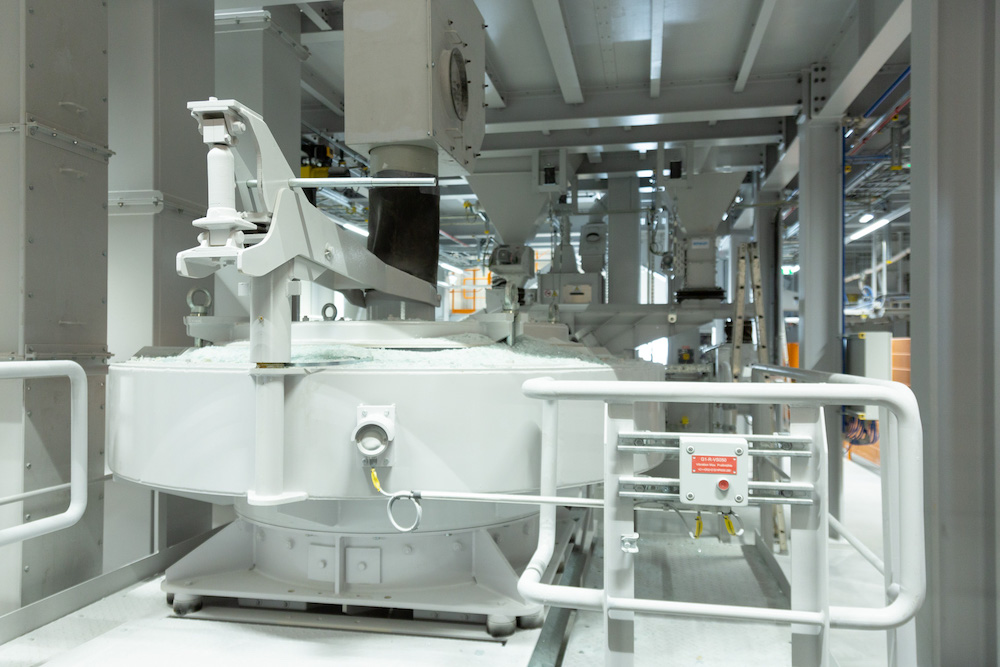


The glass granulates are fed to the blast furnaces via an elevator. The granulate is heated and melted in energy-efficient shaft furnaces. Due to high surface tension, the liquid glass particles contract and the ideal spherical shapes are created. Every second, several million irregularly shaped glass particles are turned into precise micro-spheres. After this thermal shaping process, the cooled beads are tested in the laboratory. The desired end product is created by mixing the individual grain sizes. The correct size of the beads is decisive for the ideal effect regarding different areas of application. With this technique, SWARCO Road Marking Systems is one of the world’s leading manufacturers of reflective glass beads.
„It was our goal to develop optimal solutions as early as the planning phase in order to make the system as durable, efficient and, above all, low-maintenance as possible. For this reason, we chose the Austrian plant manufacturer and recycling technology provider REDWAVE, which has many years of experience in plant construction and supported us very well in realising our goals.” Peter Steiner, Project Owner at SWARCO.
